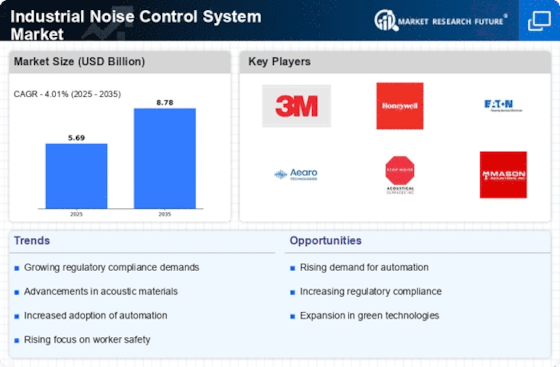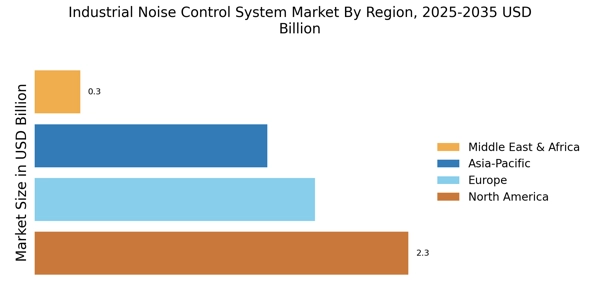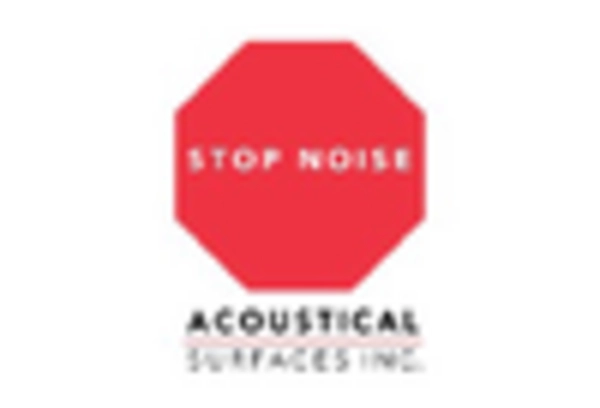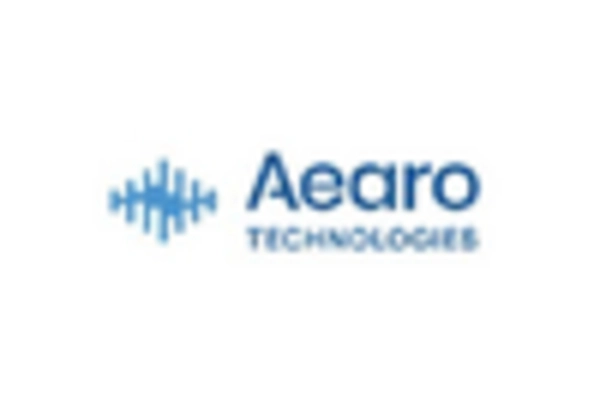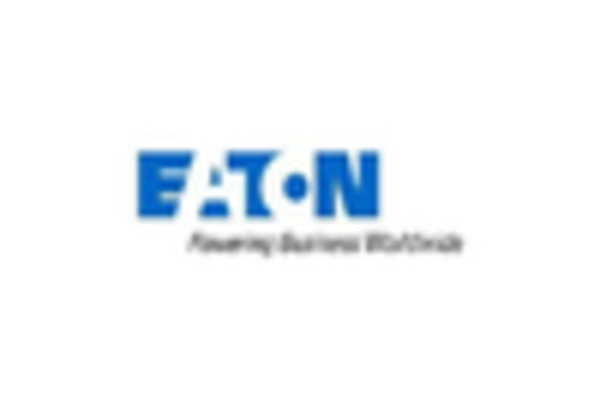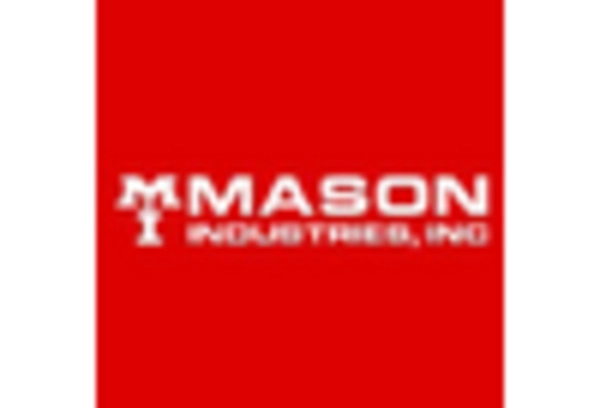Demand for Sustainable Noise Control Solutions
The Industrial Noise Control System Market is evolving with a rising demand for sustainable and eco-friendly noise control solutions. Companies are increasingly seeking products that not only reduce noise but also minimize environmental impact. This trend is driven by consumer preferences for sustainable practices and the need for industries to align with corporate social responsibility goals. Innovations in biodegradable materials and recyclable soundproofing products are gaining traction, reflecting a shift towards sustainability in noise control. As industries adopt greener practices, the market for sustainable noise control solutions is expected to expand, potentially leading to a market growth rate of 4% to 5% in the next few years.
Growing Awareness of Occupational Health Risks
The Industrial Noise Control System Market is witnessing a heightened awareness of occupational health risks associated with excessive noise exposure. Studies have shown that prolonged exposure to high noise levels can lead to hearing loss and other health issues among workers. As a result, companies are increasingly investing in noise control systems to protect their employees and comply with health and safety regulations. This growing focus on employee well-being is likely to drive market growth, as organizations recognize the importance of creating a safe working environment. The market could see a compound annual growth rate (CAGR) of around 6% as more industries prioritize health and safety measures.
Regulatory Pressures and Compliance Requirements
The Industrial Noise Control System Market is heavily influenced by stringent regulatory pressures aimed at reducing noise pollution in industrial environments. Governments and regulatory bodies have established noise level standards that industries must adhere to, which drives the demand for effective noise control solutions. Compliance with these regulations not only mitigates legal risks but also enhances the reputation of companies as responsible corporate citizens. As industries face increasing scrutiny regarding their environmental impact, the adoption of noise control systems becomes essential. This trend is likely to propel the market forward, with estimates suggesting that compliance-related investments could account for a substantial portion of the overall market expenditure.
Technological Innovations in Noise Control Systems
The Industrial Noise Control System Market is experiencing a surge in technological innovations that enhance noise reduction capabilities. Advanced materials, such as sound-absorbing composites and acoustic panels, are being developed to improve performance. These innovations not only provide better sound insulation but also contribute to energy efficiency in industrial settings. The integration of smart technologies, such as IoT-enabled noise monitoring systems, allows for real-time data collection and analysis, enabling companies to optimize their noise control strategies. As industries increasingly prioritize operational efficiency and employee well-being, the demand for these advanced noise control solutions is expected to rise significantly, potentially leading to a market growth rate of over 5% annually in the coming years.
Expansion of Manufacturing and Construction Sectors
The Industrial Noise Control System Market is benefiting from the expansion of manufacturing and construction sectors across various regions. As these industries grow, the associated noise levels increase, necessitating the implementation of effective noise control measures. The construction sector, in particular, is known for generating significant noise, prompting the need for robust noise control systems to comply with regulations and ensure worker safety. This expansion is likely to drive demand for noise control solutions, with projections indicating that the market could experience a growth rate of approximately 5% to 7% as new projects emerge and existing facilities upgrade their noise management systems.


